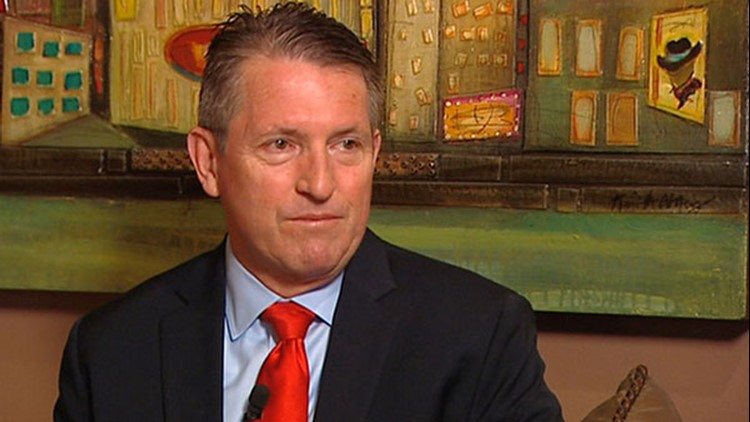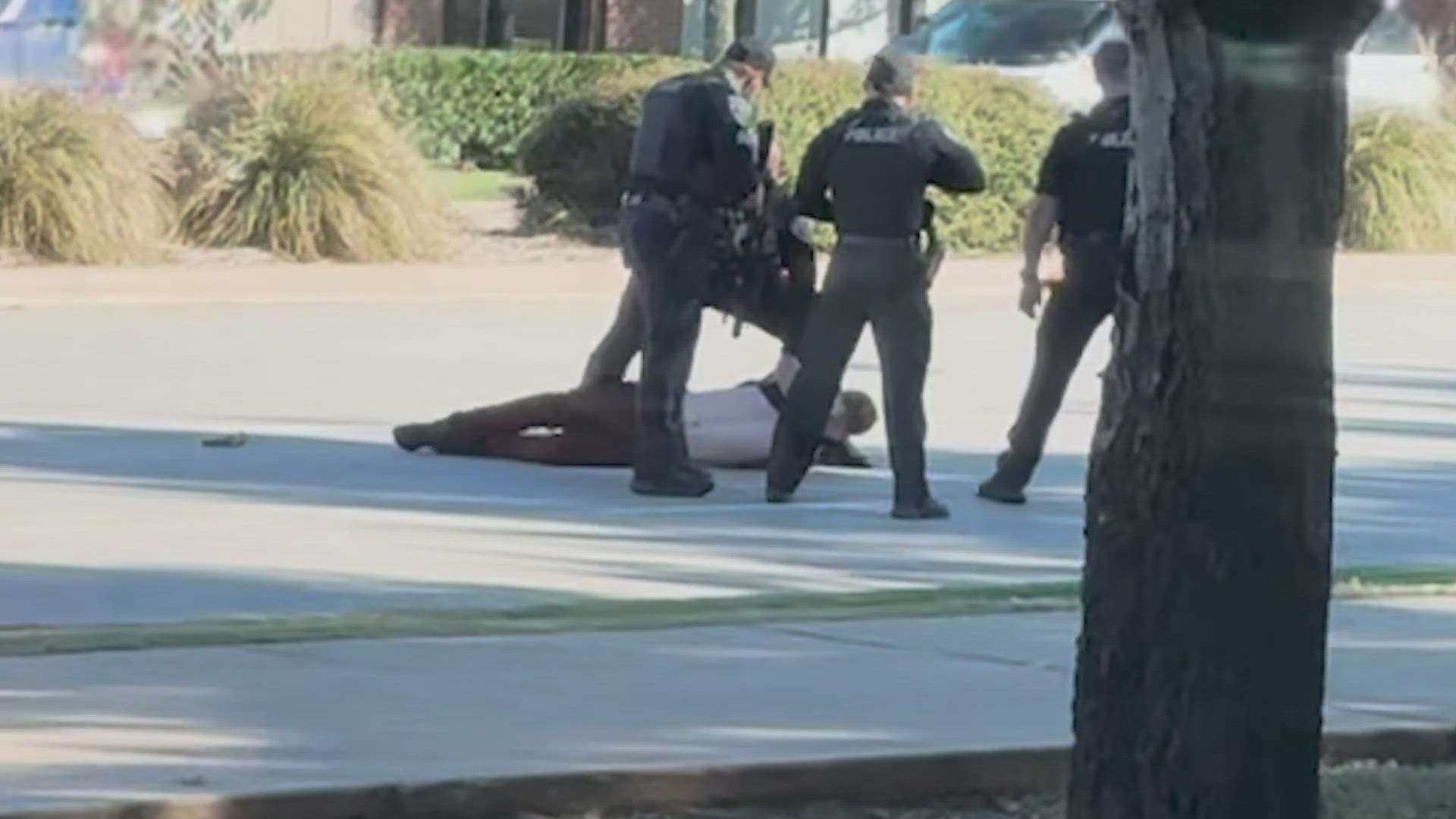DALLAS — Former Dallas Police Chief David Kunkle died Friday morning after a long battle with Lewy body dementia. He was 72.
In his almost six years as Dallas police chief, Kunkle brought the department into the modern era of policing, left lasting crime reductions and dramatically improved police-community relations.
“He was the best chief I’ve ever seen,” said Malik Aziz, a former Dallas deputy chief. “I have never seen a person who did what he did who didn’t gloat about it. He had a real story to tell about the turnaround in Dallas that occurred under his leadership.”
During his tenure as Dallas’ 27th police chief, the city saw six consecutive years of crime reduction. The city reached its lowest number of murders in 40 years, dropping from 248 murders the year he started to 148 when he left.
Kunkle began his policing career in Dallas as an officer in 1972, rising to become the youngest police captain in the department’s history. He left to become chief in Grand Prairie at 31. He’d later become chief in Arlington and then serve as deputy city manager for five years when he put his name in the ring to become chief in Dallas.
Somewhat socially awkward, Kunkle did not seem like the obvious pick when he assumed command of the department in 2004.
The then-city manager had fired the prior chief, Terrell Bolton. Kunkle inherited a department beset by troubles all around: a lackluster approach to crime fighting, management failures revealed by the 2001 “fake drug scandal” in which more than two dozen people, mostly Hispanic, were falsely arrested after paid Dallas police informants planted drugs on them and flawed hiring practices.
Kunkle quickly moved to change the culture of the department. He tightened up the department’s hiring practices. He demoted chiefs who’d been part of the dysfunction and began filling the command ranks with competent leaders.
He worked hard to improve relations with the city’s minority communities, building up support from neighborhood groups that would last throughout his tenure.
Within six weeks of his arrival, Kunkle moved to eliminate the department’s use of a controversial neck hold that had contributed to a man’s death that year before.
Kunkle also decided to buy hundreds of Tasers to reduce in-custody deaths.
Community leaders applauded Kunkle’s decision to ban the neck hold – a decision that came years before many other police departments would ban such choke holds.
In short order, Kunkle had proved himself willing to make the tough decisions and willing to buck the police associations.
In 2006, Kunkle again angered police officers when he implemented one of the strictest vehicle pursuit policies in the country. His decision came after repeated police crashes had left innocent people either dead or severely injured.
“I don’t know that we can calculate the amount of lives that have been saved because of his progressiveness and his thinking,” said retired Dallas assistant Chief Mike Genovesi.
During his tenure, the department began using crime mapping in a way they had not before to drive the department’s crime fighting strategies. Patrol chiefs now had to come downtown once a week to explain what they had done and not done.
“That accountability was drilled in on a weekly basis,” Genovesi said.
Another big change came in 2006 with the decision to buy more than 500 in-car dash cameras and laptop computers.
The money came from a three-year, $15 million public safety grant given by the W.W. Caruth Jr. Foundation of the Communities Foundation of Texas. At the time, the grant was believed to be the largest ever given to a police department.
Kunkle also brought to Dallas a leadership style that welcomed discussion and thoughtful dissent.
“He wasn’t boisterous,” said Aziz, who now serves as police chief in Prince George’s County, a Washington D.C. suburb. “He didn’t brag. If this was chess, he would be a grandmaster. At every moment, he was eight moves ahead.”
Long before it became a common practice for departments to release videos of controversial incidents, Kunkle made it a practice.
In 2008, when a Dallas police officer detained an NFL player Ryan Moats outside a hospital where his mother-in-law lay dying, Kunkle released the video which showed the officer berating Moats.
That same year, Kunkle also released video showing an officer racing to a call and striking and killing 10-year-old Cole Berardi as he rode his bike to the store. As a result, Kunkle tightened the department's driving rules.
“His greatest accomplishment was restoring the trust in the organization, because people did not trust us,” said DART Police Chief Charlie Cato, who served as an assistant chief during Kunkle’s tenure. “People could trust David Kunkle so they could trust the Dallas Police Department.”
Aziz recalled his first command-level crime statistics meeting after his promotion to deputy chief in 2008.
“He starts the meeting with what I perceived to be a crazy notion,” Aziz said. “And he says, ‘Does anybody have anything to say about what I just said?’ Nobody says a word. Remember, I’m freshly minted deputy chief. I’m looking around the room hoping somebody would say something. They don’t say anything. So he looks at me and he says, ‘Malik, you got anything?’ I said, ‘No.’”
As the meeting ended, Kunkle called him into his office.
“I came in and I had a seat,” Aziz said. “He turned around and he looked at me. He said, ‘Did you hear what I said in the meeting? I said, ‘I heard it.’ He says,
‘What did you think about it? Malik, I put you in place because you say the things that need to be said.”
Aziz said Kunkle turned around and began typing on his computer. The chief had said what he wanted to say. The meeting was over.
“He wanted open debate,” Aziz said. “He liked the intellectual discourse of ideas even though he knew he had the final decision.”
Many of the commanders Kunkle promoted went on to becomes police chiefs, too. In addition to Aziz, his second in command David Brown served as Dallas’ chief and later as chief in Chicago. Charlie Cato became chief in Mesquite and now serves as chief of DART. The late Floyd Simpson, one of Kunkle’s assistant chiefs, served as chief in Corpus Christi.
“When you get good people and put them in good positions in the right place as he always said, ‘Give them the right seat on the bus, good things will happen after that,’” Cato said.
Kunkle’s leadership achieved national acclaim. He was featured in a PBS documentary by Jim Collins, best-selling author of the leadership book Good to Great as a successful leader who’d turned around an organization in crisis.
He also helped lead the creation of the Caruth Police Institute at the University of North Texas at Dallas. He retired from the department in 2010 with widespread support from the community and the rank and file.
The following year, he ran for mayor, losing in a runoff to Mike Rawlings.
While Kunkle loved policing, he once told WFAA that the love of his life was his wife, Sarah Dodd. They met while he was police chief, and she was a TV reporter. Married now almost 17 years, she’s remained faithfully by his side as Lewy body dementia slowly robbed him of his intellect and the physical agility he’d once had as a marathon runner.
To the people who knew him, he was always just, “Chief.”
His is a legacy worth remembering. He is gone but his legacy not forgotten. And that is the measure of a leader.
In addition to his wife, Sarah Dodd, Kunkle is survived by his son, Michael Kunkle; his mother-in-law Vicki Dodd; grandchildren, Sarah Belmares, Abbigail Kunkle, Jeremy Kunkle; brother, Steve Kunkle and his wife, Melissa; their children, Matthew Kunkle, Rachel Kunkle, Nathan Kunkle, Hannah Hollingsworth; his sister, Kay Myers and her husband, Ron; and their children, Jessica Biggs, Jacob Myers, Zachary Myers and Andrew Myers.
Funeral services will be held the Sparkman/Hillcrest Funeral Home in Dallas on Wednesday, July 19, at 10 a.m. The service will also be livestreamed and can be viewed here.
Senior Crime and Justice Reporter Rebecca Lopez contributed to this report.



